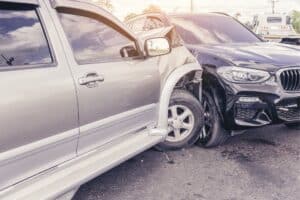Auto accidents can be a life-changing experience for anyone involved. Besides physical and emotional distress, accidents can lead to financial difficulties for victims, making it hard for them to cope with expenses such as medical bills, lost wages, property damage, and pain and suffering. To address these challenges, auto accident settlements can help compensate victims for their damages.
However, one common question that arises from auto accident settlements is whether they are taxable or not. In Washington State, the answer is not always straightforward, and it largely depends on various factors. In this article, we will delve deeper into the complexities of auto accident settlements in Washington State, including their tax implications.
Auto Accident Settlements in Washington State
An auto accident settlement is a legal agreement between the victim of an auto accident and the at-fault driver or their insurance company. Typically, the settlement includes compensation for damages resulting from the accident, such as medical bills, lost wages, property damage, and pain and suffering.
In Washington State, the law requires the at-fault driver to pay for the damages resulting from the accident. This means that if you are involved in an auto accident in Washington, you can file a claim with the at-fault driver’s insurance company or sue the driver directly for damages.
If you file an insurance claim, the insurance company may offer a settlement to compensate you for your damages. If you accept the settlement offer, you will typically be required to sign a release form that waives your right to sue the at-fault driver for additional damages related to the accident.
Taxation of Auto Accident Settlements in Washington State
In Washington State, the general rule is that compensation for personal injuries and property damage resulting from an auto accident settlement is not taxable. However, certain exceptions exist.
If a portion of your settlement includes compensation for lost wages or income, that portion of the settlement may be taxable. For example, if you were unable to work as a result of the injuries sustained in the accident and received a settlement that includes compensation for lost wages, that portion of the settlement may be taxable.
Similarly, if your settlement includes interest or punitive damages, those portions of the settlement may also be taxable. Interest payments are typically taxable as income, while punitive damages are considered to be a form of income.
Labeling and Structuring Your Settlement
One way to minimize your tax liability associated with an auto accident settlement is to carefully label and structure your settlement. If you receive a lump-sum settlement that includes compensation for lost wages, medical bills, and property damage, the IRS will generally treat the entire settlement as non-taxable.
However, if you receive a structured settlement that includes both non-taxable and taxable elements, you may be able to avoid paying taxes on the taxable portion of the settlement. A structured settlement is an agreement in which the victim receives a series of payments over a period of time, rather than a lump sum.
By structuring your settlement in this way, you may be able to reduce your tax liability by spreading out the taxable portion of the settlement over several years. It’s important to note, however, that structured settlements are subject to specific tax rules, and working with an experienced personal injury lawyer is crucial to ensure that your settlement is structured in a way that maximizes your financial recovery while minimizing your tax liability.
Why You Need a Personal Injury Lawyer
Navigating the legal and tax implications of an auto accident settlement can be complicated and overwhelming, especially if you are still dealing with the physical and emotional aftermath of the accident. That’s why it’s essential to work with an experienced personal injury lawyer who can guide you through the process.
A personal injury lawyer can help you:
- Understand your legal rights and options
- Determine the value of your claim
- Negotiate with insurance companies to ensure that you receive fair compensation
- Ensure that your settlement is structured in a way that minimizes your tax liability
- Represent you in court if necessary
Partnering with NBF Accident Law
If you’re looking for legal guidance and support to help navigate the complexities of auto accident settlements in Washington State, NBF Accident Law is here to help. Our team of experienced personal injury lawyers can provide you with the guidance and support you need to maximize your financial recovery and minimize your tax liability.
At NBF Accident Law, we understand that each case is unique, and we work closely with our clients to understand their specific needs and goals. When you work with NBF Accident Law, you can expect:
- Compassionate and experienced legal representation
- Personalized attention and support throughout your case
- A team of lawyers with a proven track record of success
- A commitment to helping you receive the compensation you deserve
Are Auto Accident Settlements Taxable in Washington State?
Auto accident settlements can be a critical lifeline for victims of auto accidents. However, understanding the tax implications of these settlements is crucial to avoid unnecessary tax liabilities. In Washington State, the rules surrounding taxation of auto accident settlements can be complicated, and it’s essential to work with an experienced personal injury lawyer to navigate the legal and tax implications of your settlement.
If you’ve been involved in an auto accident in Washington State and have questions about your legal rights and options, NBF Accident Law is here to help. Contact us today at (206) 923-8888 to schedule your consultation and learn more about how we can help you maximize your financial recovery and minimize your tax liability.





